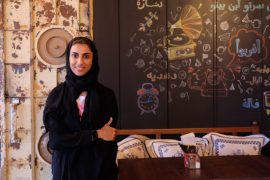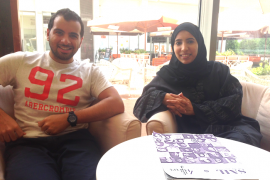Mohammed Saeed Harib; better known as the man behind the famous animated TV series aired during Ramadan: Freej. However, there is more to Harib than just Freej. He creatively expanded to Freej folklore, wedding production, music production, photography, films, events, and much more. Our editor in Chief, Iman Ben Chaibah, interviewed him for this month’s issue. Join us as we get to know more about his journey through it all.
[youtube id=”nDNO68t_dkQ” width=”600″ height=”350″]
Sail eMagazine (SM): So how did you get into all the above?
Mohammed Saeed Harib (MSH): It goes back to me having studied General Arts and Animation. I decided early on that I wanted to be jack-of-all-trades rather than being the ace of one; and with time, hopefully I’ll be the ace of many. When I went into logo design, I wanted to leave my mark and started off with few logos, and later I ended up doing the Dubai International Film Festival (DIFF) logo. That’s a mark for me that I’m proud of. When it came to cartoons, I am considered the pioneer here in the region. In terms of events, we are currently directing prestigious ones like the opening of DIFF and doing huge ones in Abu Dhabi like the launch of Shams 1 – the 100 MW concentrated solar power plant -. And the list goes on.
SM: How did you manage all that?
MSH: I’ve learnt a lot about the art of marketing and sales. You need to know all the slices in the pie. Even if you’re very artistic you still need to have the entrepreneurial spirit. I kept trying for 3 years until I got a loan to fund my projects, not even a grant. So it all depends on how strongly you believe in yourself.
SM: Where did the name “Lammtara studio” come from?
MSH: I’m a big horse-race fan. A while ago, there was an open day for the first batch of horses that were flown-in from Europe; this was an experiment by Sheikh Mohammed Bin Rashid to assess if horses can be trained in Dubai and taken back to Europe to race, as opposed to training them in Europe. So I went to the open day to see the horses. And I remember seeing this horse called Lammtara; they said he was too sick and didn’t think he’d make it. Previously, Lammtara ran once in his life, a small race though, and he won it.
In the professional horse-race world, you often target the Derby, which is the biggest race in Europe. Never did a horse win the Derby without running the same year to warm up. I was surprised after few months that Lammtara participated in the Derby, although he hadn’t raced at all in that year. Surprisingly, he won and he never lost since! This was a story about a horse that people didn’t believe in, and it beat all the odds to be a champion, so his name and his story inspired me.
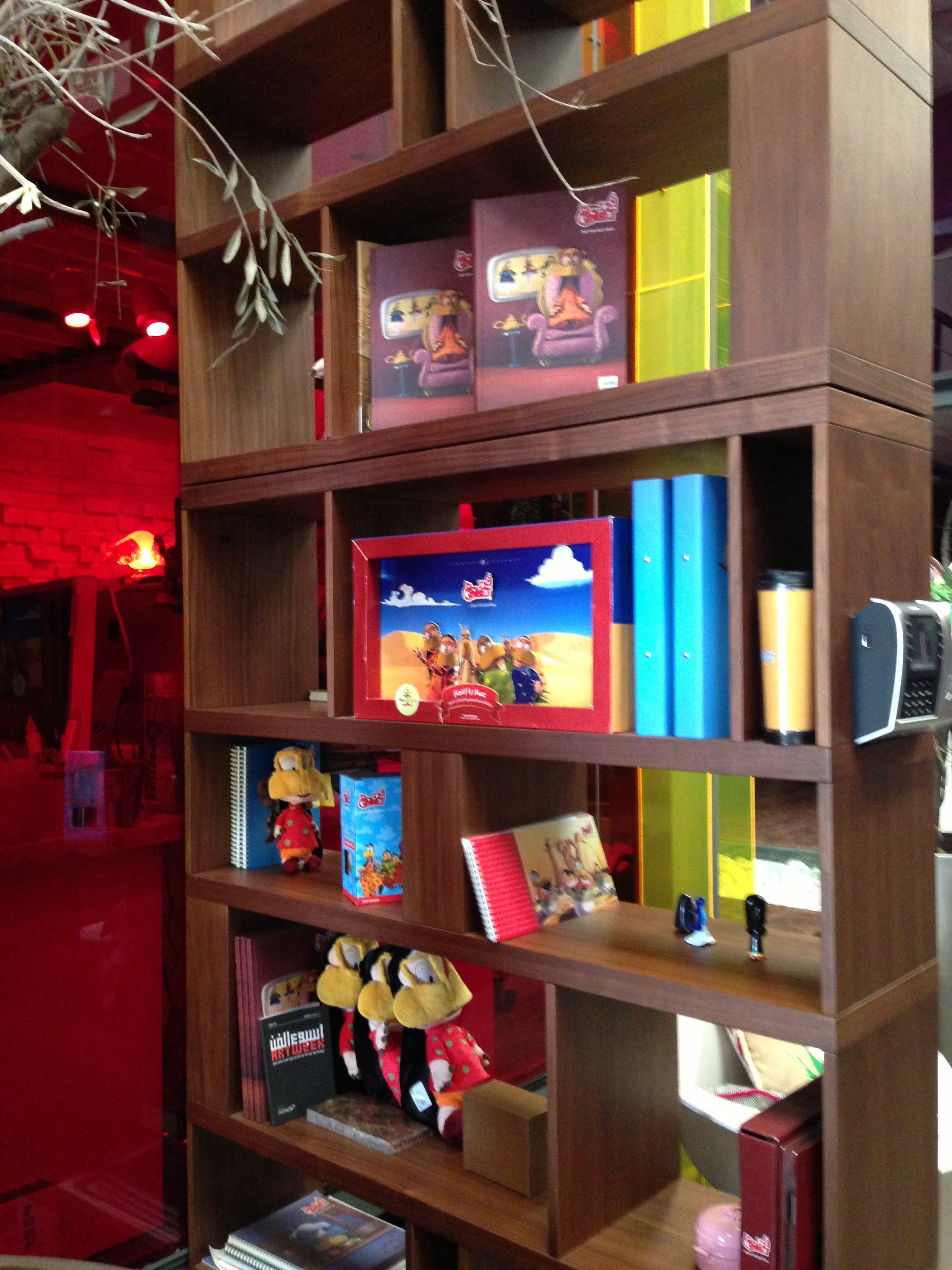
SM: You are now in the 5th season of Freej. How do you relate to each season?
MSH: Freej’s experience is very different for me. People loved season 1 so much not because it had good content, but because it was a breath of fresh air, something new and different.
In the 2nd season we made it better. But people said they still liked the 1st season more, because they’re emotionally attached to it. However, after season 3, I took a break and stayed away for 2 years to let people miss the concept.
With season 4 we came with fresh new ideas such as “Shamma shay” and big production standards. I got a lot of negative feedback claiming the show is purposeless, I believe it’s because our audience is used to be spoon-fed and to be given the problem and the solution in the episode, but then they don’t change as a result to address those problems in the real life. So I told myself, stick to what you believe in. I decided I want to portray timeless topics and not get into social issues.
With the end of season 4 we reached a mature stage to evolve our tools. We decided to kill one of our characters and see what this show means for the audience. The moment we ended that episode with the door closing at Um Saeed, all hell broke loose. We put a heart pulse at the end of that episode after the credits; some people saw it, some didn’t and the debate of whether she died or not lasted for a year. Which is good for any show. So if this show is strong enough to make you feel and connect with the characters that aren’t real, and you still complain about the show, then this show is too powerful for you to understand or acknowledge its influence on you.
So when we started the first episode of the 5th season – which I got a lot of negative feedback on – I couldn’t just bring Umm Saeed back or open the door and she walks in. We built the episode in a way she is probably dead till the last moment. For me it had a very big purpose, I planted in kids something they connected with: the love of grandmothers.
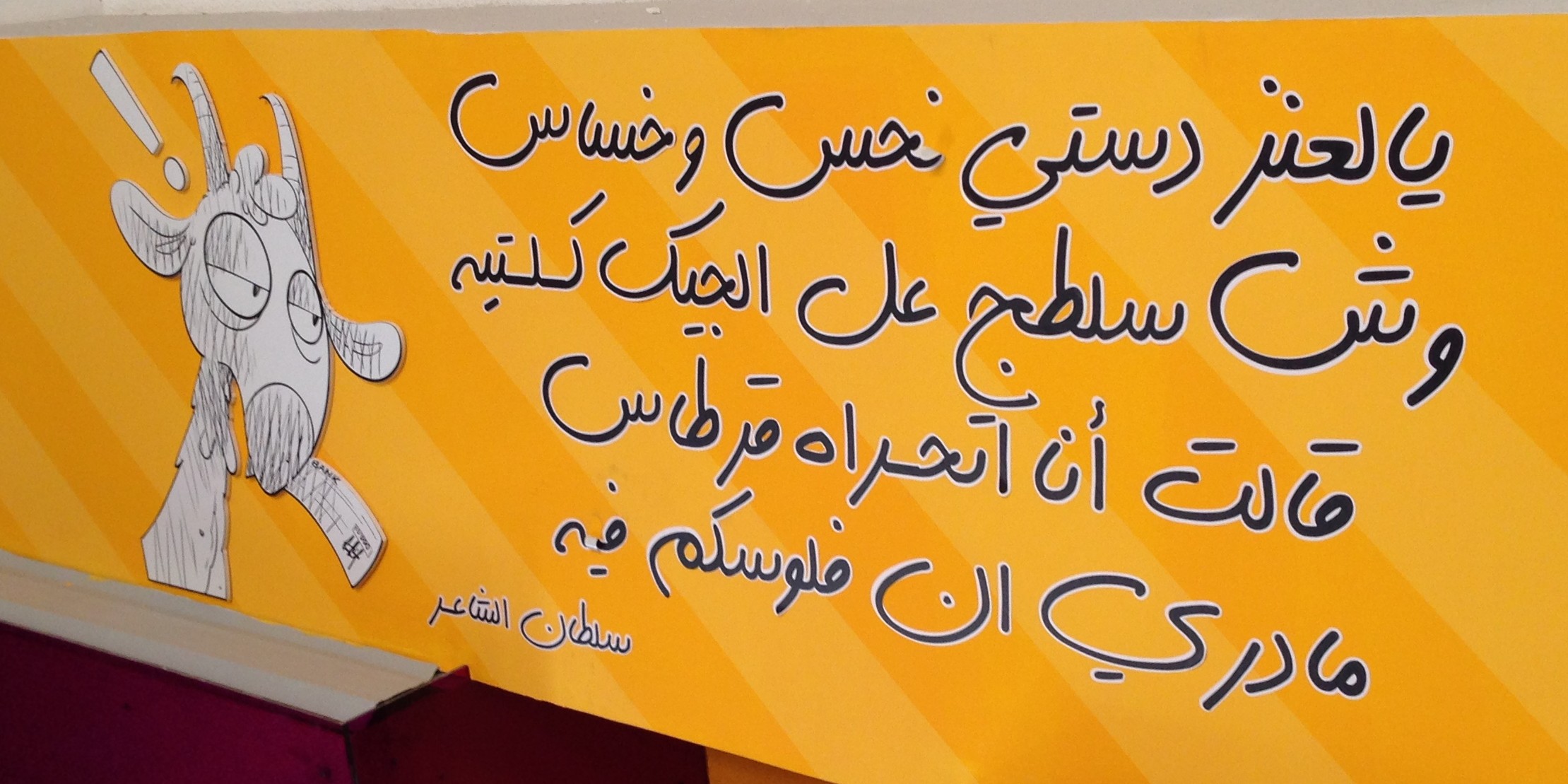
SM: How did you accept that some people will always lash against your show?
MSH: All this fuss is happening for a 15-minute show. Hours and hours of entertainment in Ramadan, but the talk of the town is about Shabiyat AlCartoon and Freej. “Which is better & which is worse?” “Today’s episode is good or not?” Which means not only do they watch it, they also have to write about it.
Someone tweeted to me the other day: “When I read people praising you I get annoyed, because I feel they are just complimenting you.” So I responded with: “First of all, I don’t know them. Second, I don’t pay them money to compliment me. Third, they’re not obliged to tell me such! What would they get from me? And how will they benefit? What will I send them in return other than thanks?”
Aside of all that, I have to keep in mind there are also the elders and kids, who have no access to social media and I know they like the show and enjoy it. It’s only the people on twitter who would give such feedback and sadly this goes to the higher authorities, and they take actions accordingly. But thankfully, the educated, the intellects, and the media people understand what I’m presenting and they ask me not to change because my standards is where the country needs to go.
SM: Have you gone immune to negative criticism?
MSH: I’m more welcoming to it now. But, if they have the right to be rude with me, I have the right to reply to them. However, I try to respond respectfully and tactfully. I find that if you impose your respect on people, they can’t offend you; and if they do and you still respond respectfully, they often feel ashamed. Sometimes when I get negative criticism, I retweet them so people see what I go through and let them reply back.
SM: Any feedback that you’ve profoundly learned from?
MSH: Sometimes I vent on twitter, with things like: “Animation all around the world is supposed to open the doors of imagination whereby animation in the Arab world is supposed to reflect reality.” And that’s wrong, because cartoon is the door of imagination. Then I get a call from my father asking me why am I upset, and then he says: “Do what you think is ok. Always bare in mind that many people out there love it.” Also recently, we got a tweet with a statistic that we were rated #1 in viewership of Emirati shows with almost 1 out of 3 Emiratis watching the show, positive news like this makes everything better.
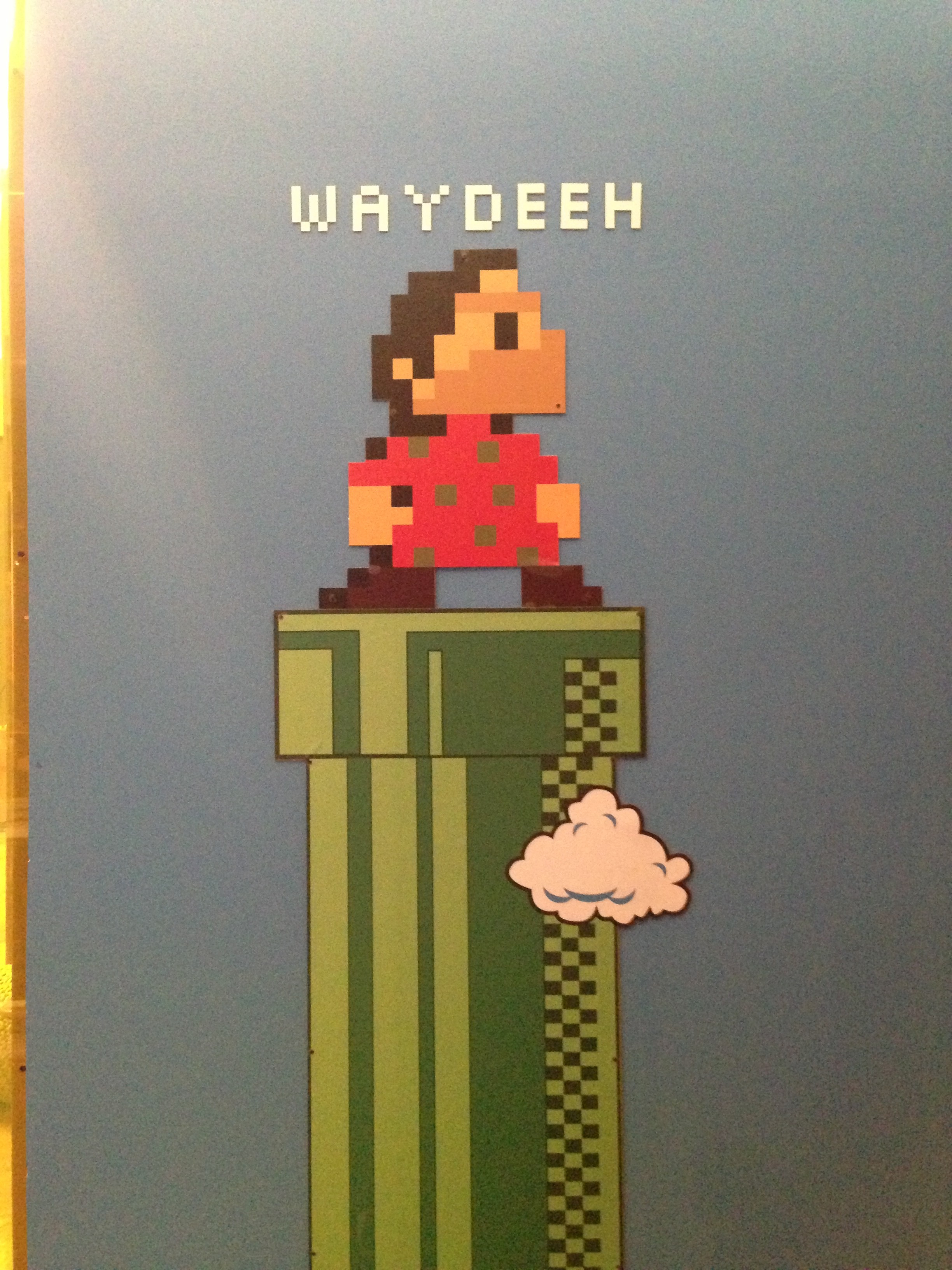
SM: Do you regularly track what’s written about your work on social media?
MSH: Yes, during the show I’m always on twitter. This year’s TV programming is done in a way that Freej is being aired on alternate days. So I’ve done a campaign in which on the day my show is not on I release the poster for the next day’s episode as a teaser. On the day my show is on, during the episode I post certain key jokes that were said during the episode, and people like to interact with them. After the episode finishes, I post asking for feedback. I also post key shots to keep the balance and positivity of the show going.
But regarding the replies, unfortunately I have to apologize for not replying to everything because it’s physically impossible for me to do so; I get a large number of posts and as much as I reply, I still have to be selective in my replies to cover the wide range of comments coming through.
SM: How did you decide to have Freej soundtracks completely produced by Lammtara?
MSH: We have composers who’ve worked for us since season 1. And as we become better, they do too. Before we used to compose random tracks for 30 seconds and place them here and there. But since the 4th season, we started to compose to pictures, when you do that you drive the mood, and that makes a world of difference to the audience.
SM: How is your experience going with the film about the prophet by Khalil Jubran?
MSH: It’s very good and different. It’s my first time collaborating with other directors. I’m directing under the director of the Lion King, Roger Allers. And I’m working with people like Salma Hayek and Liam Neeson. Every director has his own chapter in this film. So we need to make sure that where a director finishes his chapter the next director picks up on the same emotional tone. It’s the kind of film that gets nominated for awards because of its strangeness and the nature of its creativity. If that happens, I’ll be an academy award director. Or at least it could get nominated for an Oscar; that on its own is powerful.
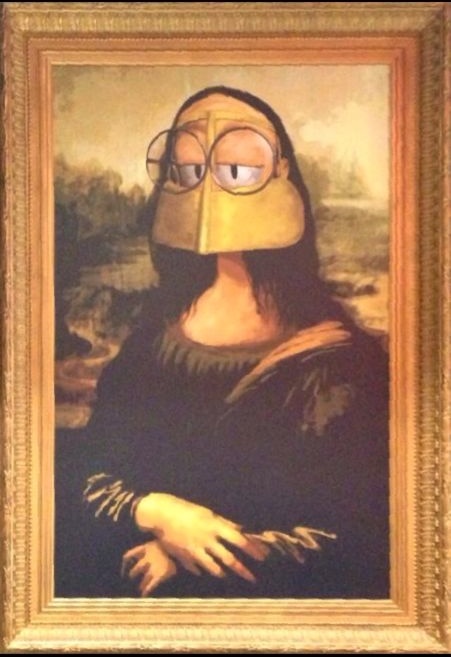
SM: What is the most precious highlight for you so far?
MSH: Being successful and being celebrated after season 1 was a highlight. Announcing my Freej theme park was a big day for me. Doing Freej folklore and coming out every day and seeing people giving us the standing ovation freezes my heart! When someone writes to me after an episode saying I swear I cried, that is dear to me. All those things are very precious to me in different ways; they all hit different notes.
SM: What do you want your legacy to be?
MSH: To be remembered as someone who had this dream, went on to do the Freej series and became successful. Someone who inspired others because he tried new things. I want to have these Freej characters outlive me and still be cherished long after I’m gone. I want them to be the icons of culture.
SM: Any advice you’d like to give our readers?
MSH: Be yourself. My company’s motto is “be brilliant”. Be yourself and be brilliant. But at the same time don’t be stagnant. You need to work on yourself, listen, understand, focus, learn how to say yes, how to play bold, how to be a marketer and a sales person. Don’t just be yourself, but be brilliant.
——————————————-
You read the interview and still want more? We actually had a much longer interview with MSH but had to cut down the interview above so it can be short enough for your quick read. But we have so much more about MSH we want to share with you, so we decided to give you a bonus post on MSH on this link! We hope you enjoy it just as much as we did!
